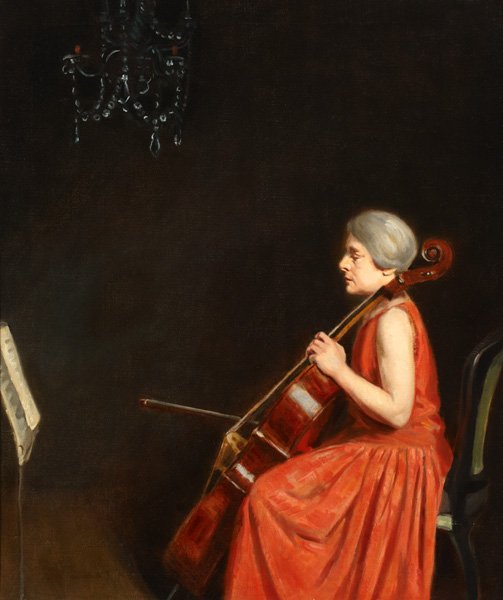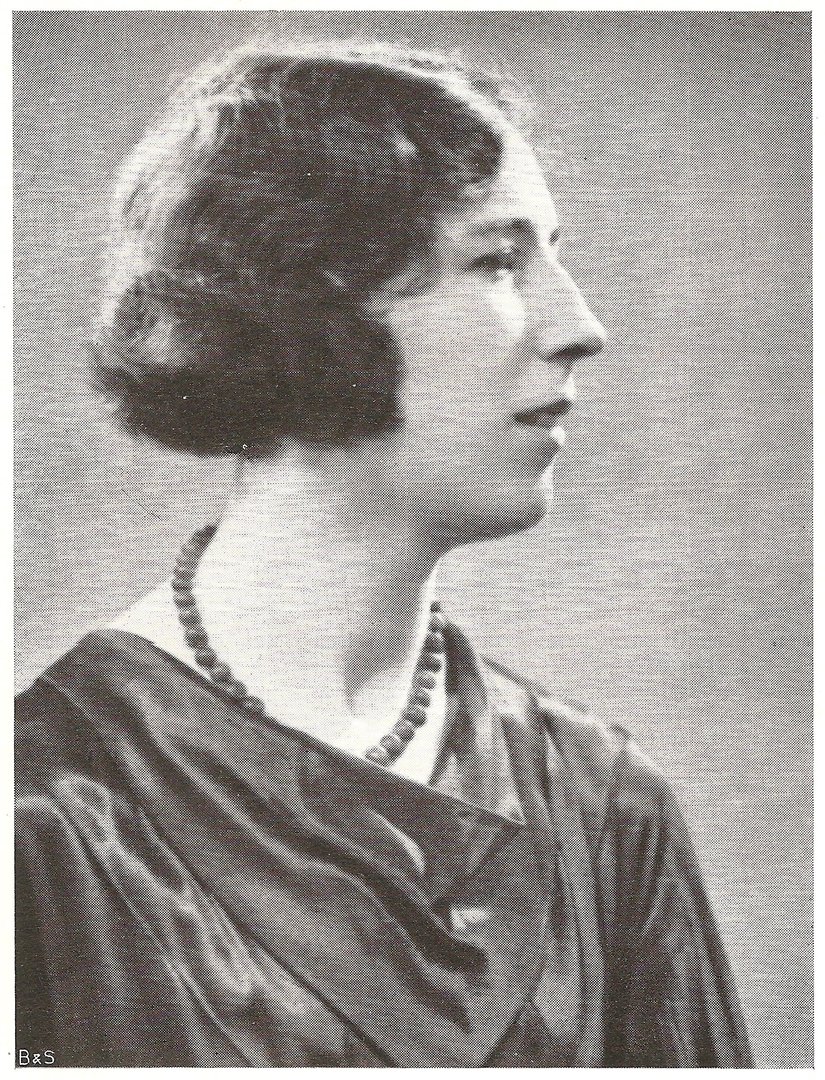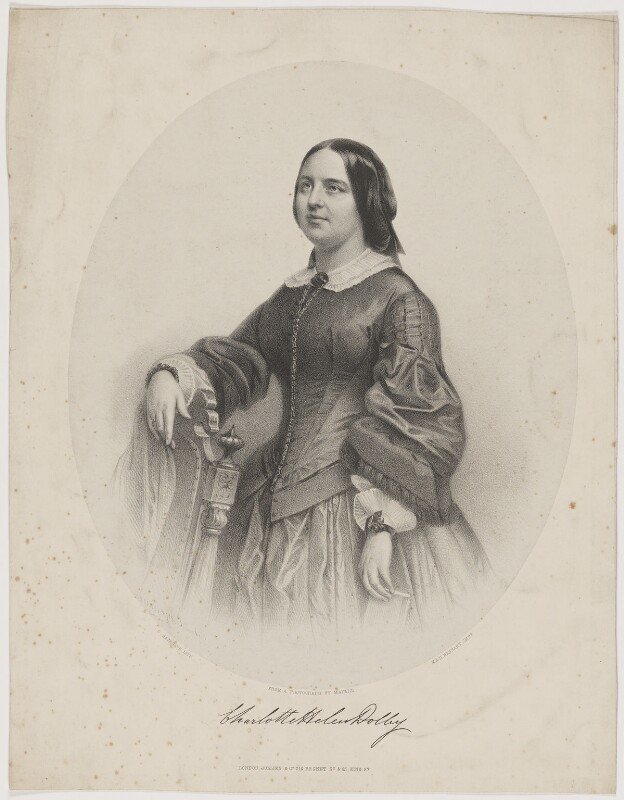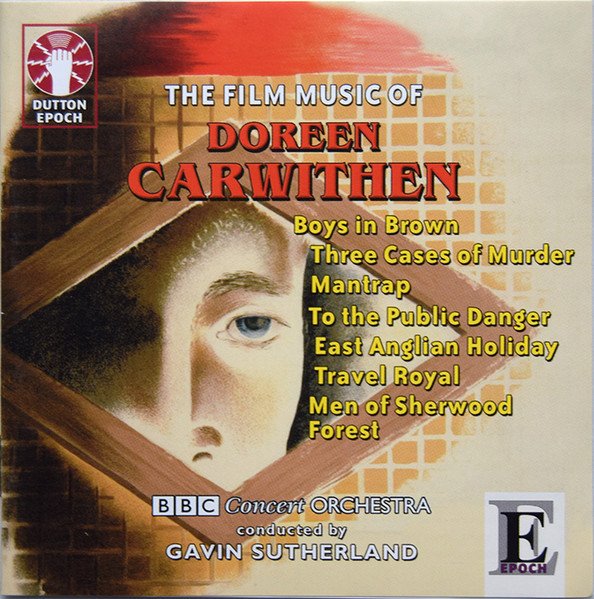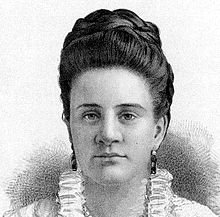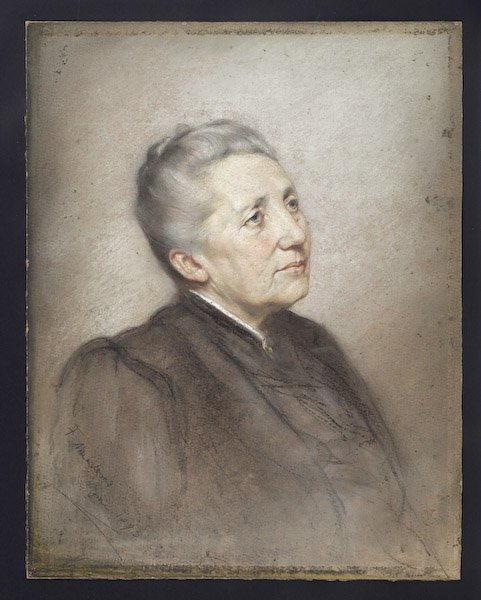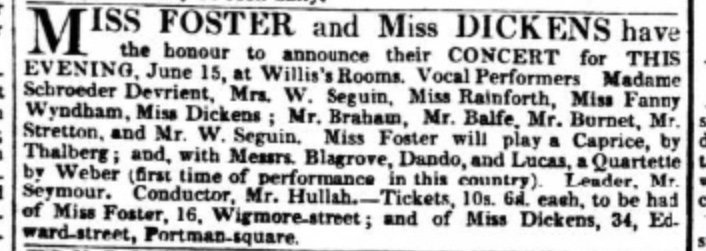By The Camp Fire: Ada Cambridge
“Ah, ‘twas but now I saw the sun flush pink on yonder placid tide;
The purple hill-tops, one by one, were strangely lit and glorified;
And yet how sweet the night has grown, with palest starlights dimly sown!
Those mountain ranges, far and near, enclasp me,— sharply pencilled there,
Like blackest sea-waves,—outlined here, like phantoms in the luminous air,
Between that cold and quiet sky, and the calm river running by.
The gum-trees whisper overhead, and, delicately dark and fine,
Their lovely shadow-patterns shed across the paths of white moonshine.
The golden wattles glimmer bright, scenting this cool, transparent night.
What spirits wake when earth is still? I hear wild wood-notes softly swell.
There’s the strange clamour, hoarse and shrill, that drowns the bull-frogs’ hollow bell;
And there’s the plaintive rise and fall of the lone mopoke’s cuckoo-call.
And nearer, an opossum flits above the firelight, pauses, peers—
I see a round ball where he sits, with pendant tail and pointed ears;
And two are gruffly snarling now in hollows of yon upper bough.
Hark! that’s the curlew’s thrilling scream. What mountain echoes it has stirred!
The sound goes crying down the stream, the wildest bird-note ever heard.
And there’s a crane, with legs updrawn, gone sailing out to meet the dawn.
It croaks its farewell, like a crow, beating the air with soft, wide wings.
On the white water down below its vague grey shadow-shape it flings,
And, dream-like, passes out of sight, a lonely vision of the night.
Ah me! how weird the undertones that thrill my wakeful fancy through!
The river softly creeps and moans; the wind seems faintly crying too.
Such whisperings seem to come and pass across the orchis-flower’d grass.
The darkness gather’d all around is full of rustlings, strange and low,
The dead wood crackles on the ground, and shadowy shapes flit to and fro;
I think they are my own dim dreams, wandering amongst the woods and streams.
The tangled trees seem full of eyes,—still eyes that watch me as I sit;
A flame begins to fall and rise, their glances come and go with it.
And on the torn bark, rough and brown, I hear soft scratchings up and down.
Sometimes I hear a sound of feet,—a slow step through the darkness steals;
And then I think of yours, my sweet, in spirit following at my heels;
For leagues before, around, behind, part me from all my human-kind.
Coo-ey!—the long vibration throbs in countless echoes through the hills.
The lonely forest wakes and sobs, and then no sound the silence fills,—
Only the night-frogs’ bubbling shriek in every water-hole and creek;
Only a rush of wind in flight, as startled wild-ducks flutter past,
Quivering and twinkling in the light, skimming the shining water fast;
And ripples from a black swan’s breast, darting from out its rushy nest.
How is’t in England?—Sunday morn, and organ-music, love, with you.
That breath of memory, idly born, like a great storm-wind shakes me through.
Ah, darling! bend your head and pray,—it cannot touch you far away.
Why do I care? My house of God, beyond all thought, is grand and great!
My prayerful knees, upon the sod, its flowers and grasses consecrate.
And I can see Him in the stars, undimmed by walls and window-bars.
Great Nature spreads her wondrous book, and shows me all her pages fair;
To me the language, when I look, seems but a letter here and there—
The very stones beneath me teach a lore beyond my utmost reach.
For all my pain, and toil, and strife, I see so dimly what is true!
O Art! O Science! O great Life! I grasp thee by so faint a clue!
No more of ocean tides I dream than minnows in their shallow stream.
Sea without bottom, without shore, where is the plumb to fathom thee?
O mystery! as I learn thee more, the more thy deeps are dark to me!
But who am I, that I should scan the Divine Maker’s mighty plan?
And yet, oh yet, if I could hear that organ-music once again,
My soul, methinks, would lose its fear; and on this troubled heart and brain
Some light of knowledge would be shed, and some few riddles would be read.”
If Once You Have Slept On An Island: Rachel Field
“If once you have slept on an island
You’ll never be quite the same;
You may look as you looked the day before
And go by the same old name,
You may bustle about in street and shop
You may sit at home and sew,
But you’ll see blue water and wheeling gulls
Wherever your feet may go.
You may chat with the neighbors of this and that
And close to your fire keep,
But you’ll hear ship whistle and lighthouse bell
And tides beat through your sleep.
Oh! you won’t know why and you can’t say how
Such a change upon you came,
But once you have slept on an island,
You’ll never be quite the same.”
Love Armed; Song from Abdelazar: Aphra Behn
“Love in Fantastic Triumph sat,
Whilst Bleeding Hearts around him flowed,
For whom Fresh pains he did Create,
And strange Tyrannic power he showed;
From thy Bright Eyes he took his fire,
Which round about, in sport he hurled;
But ’twas from mine he took desire
Enough to undo the Amorous World.
From me he took his sighs and tears,
From thee his Pride and Cruelty;
From me his Languishments and Fears,
And every Killing Dart from thee;
Thus thou and I, the God have armed,
And set him up a Deity;
But my poor Heart alone is harmed,
Whilst thine the Victor is, and free.”
Of Karen, The Dancing Child: Katherine Mansfield
“O little white feet of mine)
Out in the storm and the rain you fly;
(Red, red shoes the colour of wine)
Can the children hear my cry?
(O little white feet of mine)
Never a child in the whole great town;
(Red, red shoes the colour of wine)
Lights out and the blinds pulled down.
(O little white feet of mine)
Never a light on a window pane,
(Red, red shoes the colour of wine)
And the wild wet cry of the rain.
(O little white feet of mine)
Shall I never again be still?
(Red, red shoes the colour of wine)
And away over valley and hill.
(O little white feet of mine)
Children, children, open the door!
(Red, red shoes the colour of wine)
And the wind shrieks Nevermore. ”
Joining The Colours: Katharine Tynan
“There they go marching all in step so gay!
Smooth-cheeked and golden, food for shells and guns.
Blithely they go as to a wedding day,
The mothers’ sons.
The drab street stares to see them row on row
On the high tram-tops, singing like the lark.
Too careless-gay for courage, singing they go
Into the dark.
With tin whistles, mouth-organs, any noise,
They pipe the way to glory and the grave;
Foolish and young, the gay and golden boys
Love cannot save.
High heart! High courage! The poor girls they kissed
Run with them : they shall kiss no more, alas!
Out of the mist they stepped-into the mist
Singing they pass.”
Secrets: Letitia Elizabeth Landon
“Life has dark secrets; and the hearts are few
That treasure not some sorrow from the world—
A sorrow silent, gloomy, and unknown,
Yet colouring the future from the past.
We see the eye subdued, the practised smile,
The word well weighed before it pass the lip,
And know not of the misery within:
Yet there it works incessantly, and fears
The time to come; for time is terrible,
Avenging, and betraying.”
A Musical Instrument: Elizabeth Barratt Browning
“I.
What was he doing, the great god Pan,
Down in the reeds by the river ?
Spreading ruin and scattering ban,
Splashing and paddling with hoofs of a goat,
And breaking the golden lilies afloat
With the dragon-fly on the river.
II.
He tore out a reed, the great god Pan,
From the deep cool bed of the river :
The limpid water turbidly ran,
And the broken lilies a-dying lay,
And the dragon-fly had fled away,
Ere he brought it out of the river.
III.
High on the shore sate the great god Pan,
While turbidly flowed the river ;
And hacked and hewed as a great god can,
With his hard bleak steel at the patient reed,
Till there was not a sign of a leaf indeed
To prove it fresh from the river.
IV.
He cut it short, did the great god Pan,
(How tall it stood in the river !)
Then drew the pith, like the heart of a man,
Steadily from the outside ring,
And notched the poor dry empty thing
In holes, as he sate by the river.
V.
This is the way,’ laughed the great god Pan,
Laughed while he sate by the river,)
The only way, since gods began
To make sweet music, they could succeed.’
Then, dropping his mouth to a hole in the reed,
He blew in power by the river.
VI.
Sweet, sweet, sweet, O Pan !
Piercing sweet by the river !
Blinding sweet, O great god Pan !
The sun on the hill forgot to die,
And the lilies revived, and the dragon-fly
Came back to dream on the river.
VII.
Yet half a beast is the great god Pan,
To laugh as he sits by the river,
Making a poet out of a man :
The true gods sigh for the cost and pain, —
For the reed which grows nevermore again
As a reed with the reeds in the river.”
The Dream: Margaret Steele Anderson
“They sing the race, the song is wildly sweet;
But thou, my harp, oh thou shalt sing the goal!
The distant goal, that draws the bleeding feet
And lights the brow and lifts the fainting soul!
(And yet, I know not!, Is the goal the place
I dream it is the while I run the race?)
They sing the fight, the list’ners come in bands;
But tune thy chords, my harp, to sing the prize,
That noble prize for which the fighter stands.
And bids his body strain and agonize!
(Yet, if I knew! O, is the prize so bright
As I have thought it, all this bitter fight?)
They sing the work; the song makes labor fair;
But thou, my harp, shalt sing the labor’s aim.
The gleaming light, the beauty throned there
That calls the worker onward more than fame!
(But oh, I pray the aim be what I sought
And visioned ceaselessly the while I wrought!)
Yet, hear me not, Watcher of the race!
Forgive me, thou Giver of the prize!
It is enough, the hope before my face.
It is enough, the dream before mine eyes!
And this I dare: to think thou hast not wrought
Or dream or ardent dreamer all for nought.”
On Imagination: Phillis Wheatley
“Thy various works, imperial queen, we see,
How bright their forms! how deck’d with pomp by thee!
Thy wond’rous acts in beauteous order stand,
And all attest how potent is thine hand.
From Helicon’s refulgent heights attend,
Ye sacred choir, and my attempts befriend:
To tell her glories with a faithful tongue,
Ye blooming graces, triumph in my song.
Now here, now there, the roving Fancy flies,
Till some lov’d object strikes her wand’ring eyes,
Whose silken fetters all the senses bind,
And soft captivity involves the mind.
Imagination! who can sing thy force?
Or who describe the swiftness of thy course?
Soaring through air to find the bright abode,
Th’ empyreal palace of the thund’ring God,
We on thy pinions can surpass the wind,
And leave the rolling universe behind:
From star to star the mental optics rove,
Measure the skies, and range the realms above.
There in one view we grasp the mighty whole,
Or with new worlds amaze th’ unbounded soul.
Though Winter frowns to Fancy’s raptur’d eyes
The fields may flourish, and gay scenes arise;
The frozen deeps may break their iron bands,
And bid their waters murmur o’er the sands.
Fair Flora may resume her fragrant reign,
And with her flow’ry riches deck the plain;
Sylvanus may diffuse his honours round,
And all the forest may with leaves be crown’d:
Show’rs may descend, and dews their gems disclose,
And nectar sparkle on the blooming rose.
Such is thy pow’r, nor are thine orders vain,
O thou the leader of the mental train:
In full perfection all thy works are wrought,
And thine the sceptre o’er the realms of thought.
Before thy throne the subject-passions bow,
Of subject-passions sov’reign ruler thou;
At thy command joy rushes on the heart,
And through the glowing veins the spirits dart.
Fancy might now her silken pinions try
To rise from earth, and sweep th’ expanse on high:
From Tithon’s bed now might Aurora rise,
Her cheeks all glowing with celestial dies,
While a pure stream of light o’erflows the skies.
The monarch of the day I might behold,
And all the mountains tipt with radiant gold,
But I reluctant leave the pleasing views,
Which Fancy dresses to delight the Muse;
Winter austere forbids me to aspire,
And northern tempests damp the rising fire;
They chill the tides of Fancy’s flowing sea,
Cease then, my song, cease the unequal lay.”
Recollection: Anne Reeve Aldrich
“How can it be that I forget
The way he phrased my doom,
When I recall the arabesques
That carpeted the room?
How can it be that I forget
His look and mein that hour,
When I recall I wore a rose,
And still can smell the flower?
How can it be that I forget
Those words that were his last,
When I recall the tune a man
Was whistling as he passed?
These things are what we keep from life’s
Supremest joy or pain;
For memory locks her chaff in bins
And throws away the grain.”
Night Song of Amalfi: Sara Teasdale
“I asked the heaven of stars
What I should I give my love—
It answered me with silence,
Silence above.
I asked the darkened sea
Down where the fishermen go—
It answered me with silence,
Silence below.
Oh, I could give him weeping,
Or I could give him song—
But how can I give silence
My whole life long?”
My Life Closed Twice: Emily Dickinson
“My life closed twice before its close—
It yet remains to see
If Immortality unveil
A third event to me
So huge, so hopeless to conceive
As these that twice befell.
Parting is all we know of heaven,
And all we need of hell.”
Of Many Worlds In This World: Margaret Cavendish
“Just like as in a nest of boxes round,
Degrees of sizes in each box are found:
So, in this world, may many others be
Thinner and less, and less still by degree:
Although they are not subject to our sense,
A world may be no bigger than two-pence.
Nature is curious, and such works may shape,
Which our dull senses easily escape:
For creatures, small as atoms, may there be,
If every one a creature’s figure bear.
If atoms four, a world can make, then see
What several worlds might in an ear-ring be:
For, millions of those atoms may be in
The head of one small, little, single pin.
And if thus small, then ladies may well wear
A world of worlds, as pendents in each ear.”
